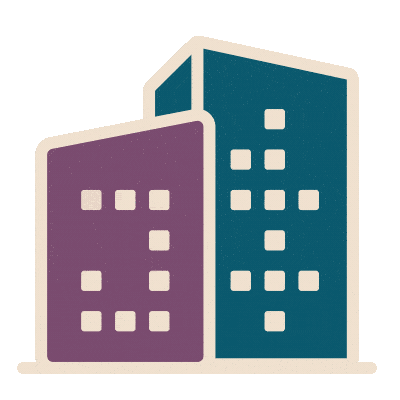IWBI Spotlight Series: Driving Market Transformation through Alignment with the UN Sustainable Development Goals
The alignment between WELL and the SDGs reinforces the powerful opportunity we have to create a more resilient, equitable and healthier future.
As the world’s 193 Member States gather at the United Nations Headquarters in New York to deliberate on the world’s most pressing priorities, IWBI is reflecting on our commitment as a participant of the United Nations Global Compact. By committing to the Global Compact, IWBI is showing support for its Ten Principles on human rights, labor, environment and anti-corruption, as well as advancing broader development goals, particularly the UN Sustainable Development Goals.
Since signing on to the Global Compact in 2019, we have made steady progress to embed these principles as part of our strategy, culture and day-to-day operations. When it comes to the SDGs, our WELL Standard and programs help translate many of the Global Goals into tangible strategies focused on human health, well-being and equity that can be adopted at the asset and organizational levels.
As health and well-being is increasingly incorporated into investment decision making, the global framework set by the SDGs is more and more relevant to organizations’ environmental, social and governance (ESG) strategies and motivation for enrolling in WELL programs. While WELL has the strongest level of alignment with SDG 3: Good Health and Well-being, it also helps support SDGs focused on gender equality, reducing inequalities, sustainable cities and communities, and responsible consumption. In 2023, IWBI introduced its WELL and SDG alignment tool, which helps map individual WELL features to specific SDG targets, helping companies address the SDGs by deploying concrete WELL strategies.
The alignment between WELL and the SDGs reinforces the powerful opportunity we have to create a more resilient, equitable and healthier future. The SDGs are widely used by corporations to inform and prioritize investment in ESGpractices. WELL’s holistic and research-driven approach has provided a roadmap for organizations to leverage increased interest in social sustainability as an organizational differentiator, enhancing their ESG strategy and reporting. Our recent resource, Leveraging WELL to Advance Social Sustainability, utilizes the UN Global Compact’s definition* to place a focus on the social pillar or the “S” in ESG and recenter the conversation around people. The guide describes how WELL can help companies incorporate social considerations into the various stages of a sustainability or ESG strategy: goal setting, financing, taking action, monitoring and reporting.
Leading companies have also continued to commit to WELL at scale, an all-inclusive approach to deploy WELL solutions across an entire organization or real estate portfolio, which helps extend WELL’s benefits by incorporating human health considerations into corporate policies and decisions about the design and operation of the workplace. By implementing WELL at scale, companies are not only supporting the health and well-being of their people, but also laying the foundation for stronger, more resilient organizations, as well as providing third party-verified proof points for entire enterprises. According to a growing body of research, investing in health has been shown to improve employee well-being and performance, enhance recruitment and retention, strengthen brand leadership and ESG strategy and improve outcomes related to diversity, equity and inclusion (DEI).
With a global reach of more than 74,000 enrolled locations across 135 countries spanning more than 5.5 billion square feet, WELL is helping put health first for an estimated 25 million plus people. IWBI is proud to continue our mission to transform buildings, organizations and communities into people-first places, and to accomplish this by driving business innovation that aligns with the SDGs.
For more information on how IWBI fulfills its commitment to uphold the UN Global Compact’s principles – promoting healthy housing as a human right, responsible labor practices, alignment of environmental and human health, and anti-corruption – and advance the SDGs, read our 2023 Annual Report: Our Movement is Growing.
*The UN Global Compact defines social sustainability as “identifying and managing business impacts, both positive and negative, on people.”







